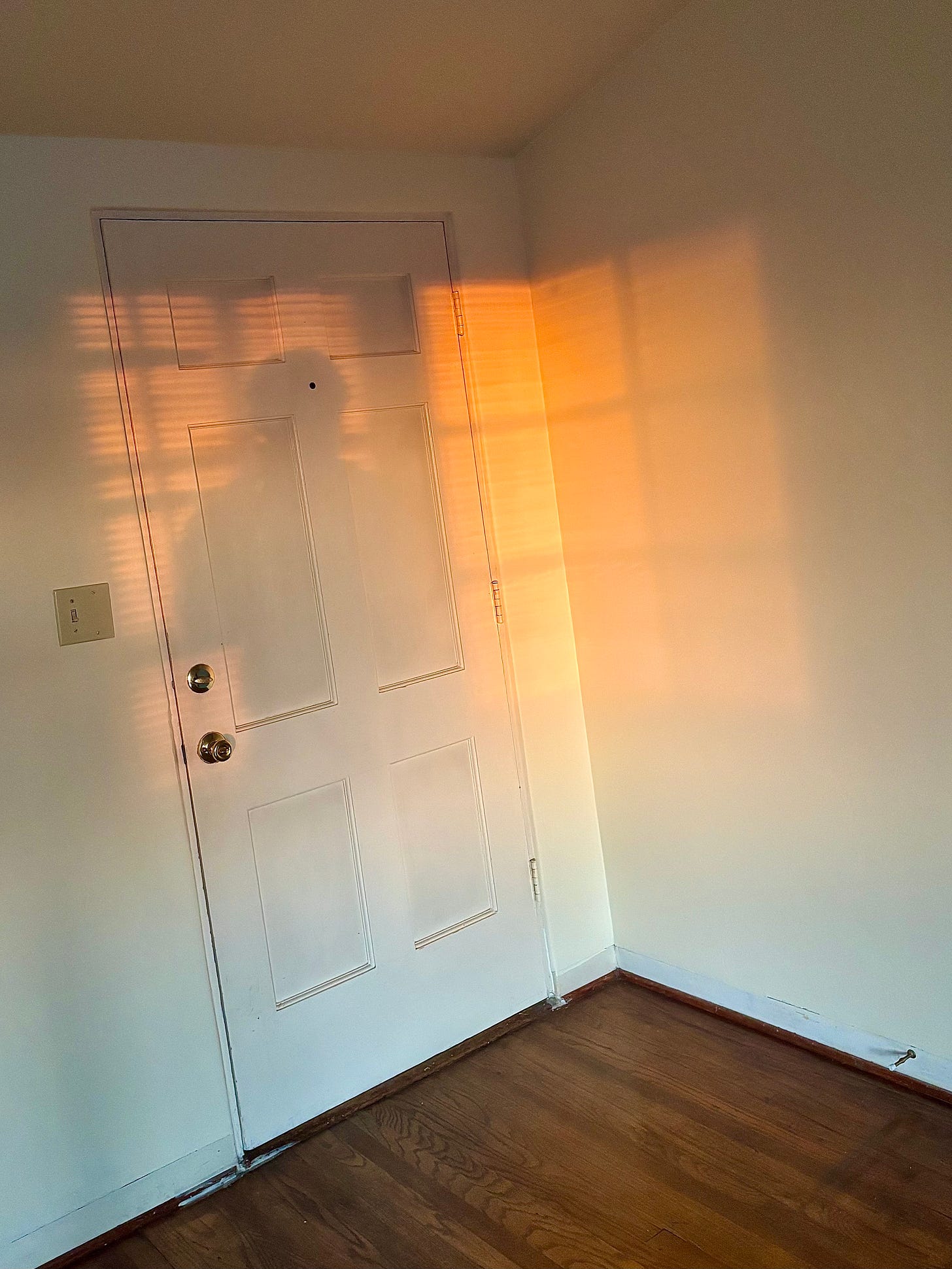It’s been a while! I guess I was busy “letting myself happen.” Since we last talked, I’ve been teaching, working on a book (currently at the stage of Frankensteinian prose-novella-poetry-collection monster), moving to a new spot (closer to the beach), and having fun offline whenever I can. I’m doing my best to be present. This week was finally a bit slower than the last few months, so this morning I sat down with my dear and neglected poetry blog and had a realization: I have the opportunity to do something very poetic: stop at just 99 posts. But nah. I like it here, and it’d be cool to keep this going for now. I’m doing my best to appreciate life’s milestones. So here’s to Poem of the Week #100! Thanks for reading any of posts #1-99, and I hope you like this one.
THE FIRST TIME THE WORLD ENDED
The first time the world ended was in eighth grade, toward the end of 2010, when I was thirteen in middle school. I learned about it through my phone: the Rapture, the apocalypse for human society, the signs of the end. I was old enough to not believe everything I heard anymore, so I laughed with my friends who made fun of the “Bible-thumpers” and their faith in ludicrous prophecies. I had read books, seen movies, and played video games about the end of the world in one way and another, and I knew the “good guys” always found a cure, defeated the zombies, or discovered a new planet on which to restart. The world wasn’t ending; I was sure of it when I woke up on the morning after the scheduled Rapture. Later that day, I got to English class early, where Mrs. Jonson was sitting behind her computer at her desk that faced us. Mrs. Jonson was a bit kooky, a few years past conventional retirement and a Luddite like most other teachers were at the onset of smart-phone culture; but, unlike other teachers who were usually coy about their personal views in the public school setting, Mrs. Jonson barely pretended to hide her conservative beliefs. I sat in the classroom with a few peers, joking about the dud of a doomsday, the school we unfortunately still had to attend. I don’t know when she looked away from her screen, but I noticed Mrs. Jonson’s gaze. She was smiling, though I remember a curve more like a sneer than a grin. Her gaze—opened our conversation to her. “Good morning, boys.” “Mrs. Jonson, did you hear about the Rapture that was supposed to happen.” I remember her smile widening, past politeness. “Oooh. Are we sure it never happened?” We looked at each other, confused. She continued, speaking to us as more students entered the room. “Some people think nothing happened, life goes on. But, others know the truth: the Rapture did occur yesterday, and all the good Christians ascended to the Kingdom of God. What remains is a false reality that exists for everyone else who was not saved.” We stared at her in shock, not used to this candid side of a teacher. “Uh… what?” “There’s no way!” Without kindness, despite her smile, Mrs. Jonson quipped “Who knows?” in a way that suggested she knew and we didn’t. As quickly as the interaction started, it ended. Class began, and we moved on to discussing Call of the Wild, ignoring the end of the world.
Endnotes
“The First Time the World Ended” is a poem from a short collection I started in a grad. seminar this past academic quarter. The collection is called (At the End of the World) Twenty-seven is All I Have and it is composed of poems and prose poems that are each constrained by the number twenty-seven: 27 words, 27 lines, and 27 sentences. This week’s poem is a 27-sentence prose poem, though it definitely leans more toward flash fiction than a typical prose poem. For me, the constraint (27 sentences) and the structure (block of text with no breaks, not even for dialogue) contain the work as a prose poem, but I also think it’s a loose container. Originally, I wrote this piece in a class about daily writing practices and it was much like a journal entry focused on the theme of apocalypse.
Last week, I attended the Association of Writers & Writing Programs (AWP) Conference in Los Angeles, and it was cool. The coolest part was sharing a room with two of my living writing heroes: Sesshu Foster and Karen Tei Yamashita! They both read as part of a panel called “Anywhere but Here & Now: California Writers Speculate on Our Past & Future” and there was a thread of doomsday stitched across each reader’s work. To write in California is to write at the end of the world: the end of the New World, the end of Westward Expansion, the end of Manifest Destiny, the end of America before the world as we’ve conceived it loops back around. Hollywood movies, underpass dwellings, overdoses, the fires, the quakes, the heat, the smog that spreads: California’s got it all, and it’s all over! It was an awesome panel reading, and I completely fanboy-ed shaking Sesshu Foster’s hand telling him how much his work means to me. If I wasn’t in so much awe, I might have told him I’m a Southern California literary artist writing about apocalypses, too.
I’ll send more from (At the End of the World) Twenty-seven is All I Have soon. I’m sitting on a lot of work that hasn’t been shared yet, and though I’m terrified of generative AI models being trained on my online writing to one day replace me (teaching a class about that currently; more on that later), I’ll keep sharing more.
Doing,
Ricky





Cheers to #100! 🥂